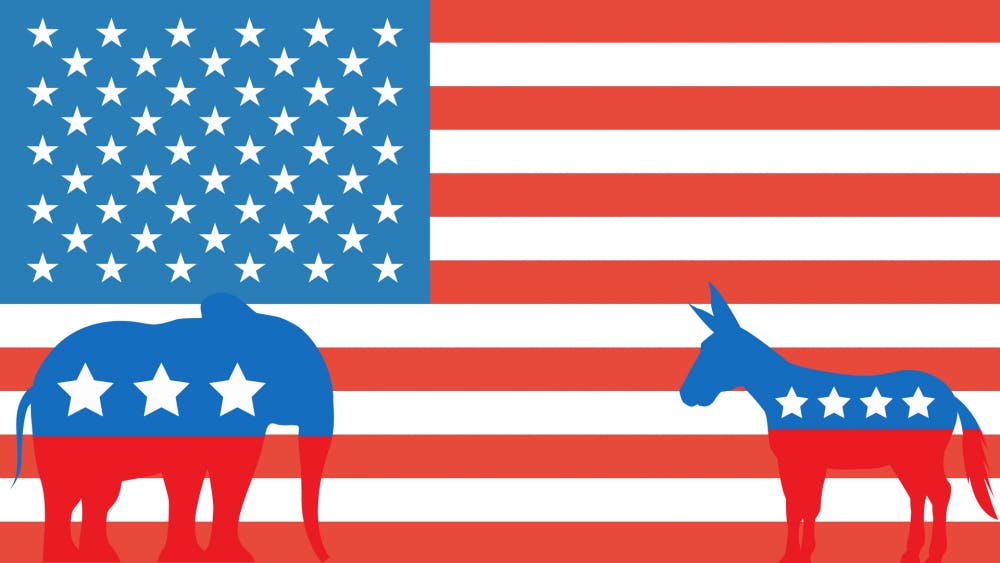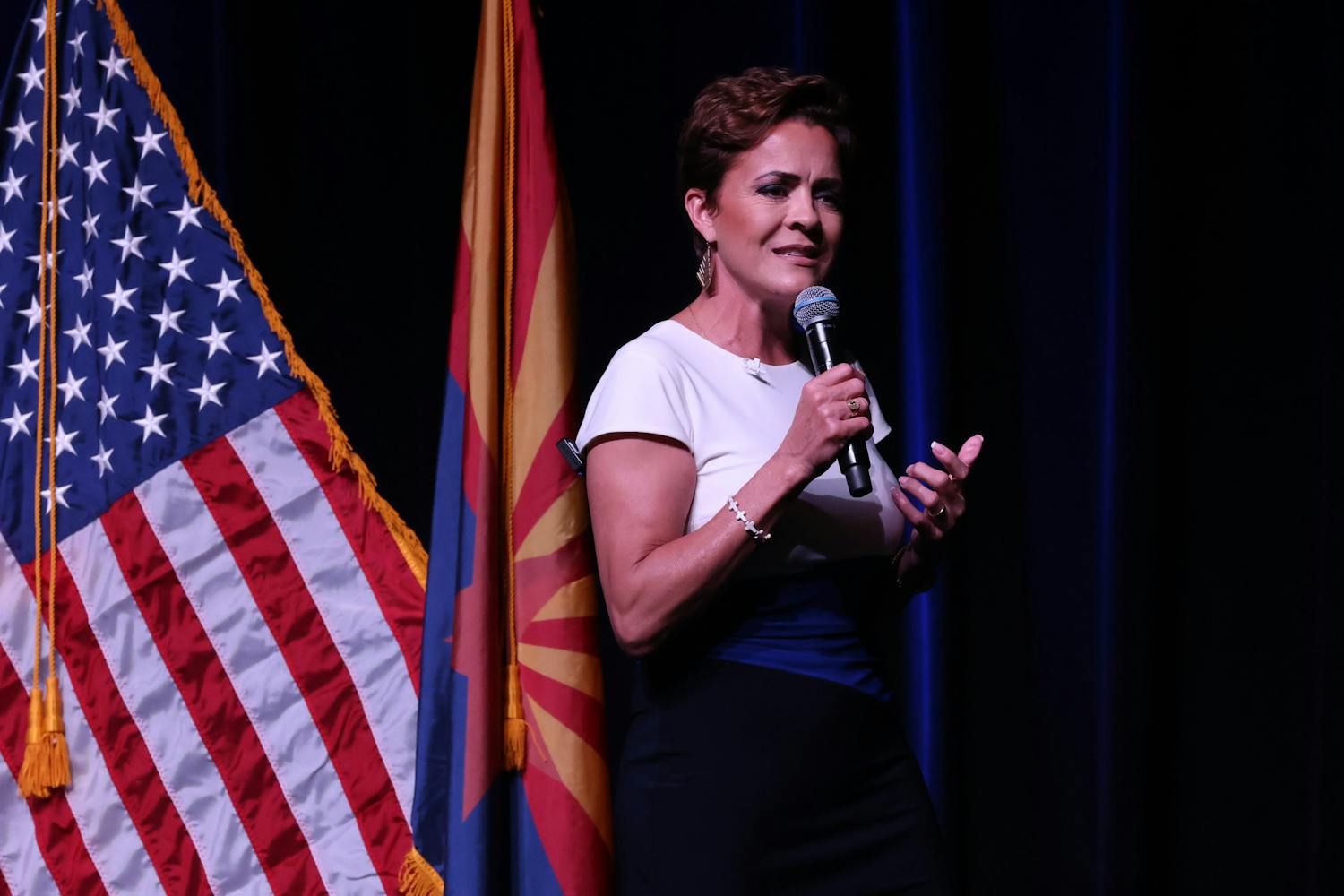Conservative Tea Partiers and liberal Resistance dominate our attention in post-2016 America, but their extreme politics are a recipe for destruction for their parties and the country.
See Counterpoint: In order to win in 2018, the Democratic Party needs to engage millennials.
A common tactic in politics is to try and appeal to one's own base, said Professor Donald Critchlow of the Center for Political Thought and Leadership, which seeks greater understanding of the foundations of democratic society.
“The trick in politics is trying to keep your base, which is pretty activist-oriented, the very ideologically-committed voters, and trying to win the moderate voters over,” Critchlow said.
After the unique election of Donald Trump to the presidency, this logic has come under attack in many areas, and Americans are both identifying themselves as more value-oriented and perceiving the country as more divided.
However, Critchlow suggests that even in the case of President Trump there was a show of outreach to moderates.
“Republicans can’t win an election just on their base, alone. Trump was able to bring in some new voters in the Midwestern states, and that proved decisive,” Critchlow says, “For him on the electoral college, a shift of 100,000 votes on those key Midwestern states would have shifted the election.”
Furthermore, as we’ve seen through several years of hyper-partisanship, there is a heavy cost to simply courting the partisan base on either side.
The ill-fated government shutdown, ending the filibuster for confirming presidential nominees except the Supreme Court Justices, and holding vacant a Supreme Court seat for over a year are all examples of the loss of Democratic norms.
And Americans have shown that they want compromise after these years of alienation with 53 percent saying it’s more important for political leaders to compromise than to just stick to their values.
For Director Paul Carrese of the School of Civic and Economic Leadership and Thought, which focuses on providing a space for broader views of liberal democracy and the free market economic order, the best leaders have shown a form of statesmanship and placed a higher value on governing.
Even Arizona’s former Senator Barry Goldwater, whose most famous quote supported an extreme position to defend liberty, could be described as a constitutional moderate.
“He was a responsible, governing person," Carrese said. "Winning elections in a party, yes, but then able to negotiate and debate and compromise and pass legislation and pass budgets."
With today’s fractured political landscape, even those who win aren't really winning.
“Look what is happening to several presidencies now: George W. Bush to Barack Obama and now Donald Trump," Carrese said. "The campaigning and the vitriol and the anger never ends. Whoever wins a particular election for whatever office, you have to ask the question, what does winning mean and can you govern a civic fabric so damaged that you can’t ever stop campaigning?”
However, some may say that this divisive state of total war on the campaign trail brings out more people.
For Senior Lecturer Gina Woodall of the School of Politics and Global Studies, who studies women in politics and the media, that may be true. However, "as a whole it is not healthy for democracy. In the short term it is good to see people get engaged, long term you see this polarization.”
Woodall said that the Democrats may attempt to replicate President Trump’s strategy of playing to the base, but that it might not work.
Amidst the intense separation of individuals by ideology even in sources of news, Woodall suggests “that political elites and the media have a responsibility to try to break people out of their silos. I think Fox News and MSNBC, I think that they have to bear some of that responsibility.”
Similarly, Carrese suggests that we in the field of education also have to look into how we have prepared the future leaders of the country.
For Critchlow, “at the end, politicians reflect their voters and their constituents.”
We’re coming out of a week in which members of Congress were shot because of their party affiliation and millions were poured into the most expensive United States House of Representatives race.
Now is the time to take a principled stand as citizens of America and guide our country to consensus and respect by forcing our parties and politicians to reach beyond their base.
As in the hit musical Hamilton, “winning was easy, governing is harder.”
Reach the columnist at raboyd@asu.edu or follow @RyanAndrewBoyd on Twitter.
Editor’s note: The opinions presented in this column are the author’s and do not imply any endorsement from The State Press or its editors.
Want to join the conversation? Send an email to opiniondesk.statepress@gmail.com. Keep letters under 500 words and be sure to include your university affiliation. Anonymity will not be granted.
Like The State Press on Facebook and follow @statepress on Twitter.

 Click the map to create your own at
Click the map to create your own at 


